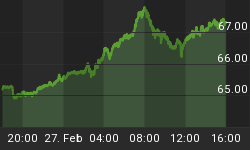
The BBC is running a three-part series on notable economists, starting with Keynes. There were a number of errors made, but I shall ignore those and address two Keynesian fallacies. The first was that Keynes correctly anticipated the economic and political consequences of the Versailles Treaty, which inflicted punitive reparations on Germany: this was true. It was bizarrely extrapolated to the current situation, concluding that Germany must reduce its prosperity and economic power to a level closer to that of the other Eurozone countries in the interests of economic balance.
The second point was that Keynes described unexpected changes in economic behaviour as "animal spirits". Mervyn King, Governor of the Bank of England no less, said on the programme that it was the best explanation for the banking crisis five years ago. To describe such an event in those terms is not an explanation and exposes a yawning gap in King's knowledge.
"Animal spirits" amount to the failure of Keynesians to explain a basic phenomenon of human action. The origin of the phrase, if the programme is to be believed, comes from Keynes's unsuccessful attempts to predict stock market prices. We have all been there: we invent a fool-proof trading system only to see it fail in practice. "Animal spirits" is a substitute for understanding that it is impossible to predict tomorrow's prices with certainty, whether they be of financial assets or of goods.
Prices change for one of two reasons. Either there is a change in the value of the goods being exchanged for money, or there is a change in the value of the money used. The banking crisis to which King referred was about a sudden change in the value of money.
Before the crisis, banks were willing to lend, and consumers were willing to borrow to buy. The prerequisite was continually expanding credit, a process that was bound to end sometime. And when it did, the consequence of a change in the availability of money was an increase in its value to the consumer, and the result was a fall in prices. "Animal spirits" is an attempt to summarise this effect without understanding it.
Left alone, prices would have adjusted to new lower levels. Government action was focused on stopping this happening, by introducing schemes such as car scrappage, or cash-for-clunkers, to encourage demand. At the same time central banks flooded the banking system with money to stop its value rising. Prices were therefore prevented from adjusting to the bursting of the credit bubble. This Keynesian solution has another fallacy at its heart, clearly stated by the experts, including King, on the programme. They believe that production has to be subsidised in order to keep unemployment down. If people remain employed, they will spend, and that gets the economy back on track. This analysis is incorrect: as we have seen, the problem is prices, not production.
The order of events does not start with production, it starts with consumption. If prices are too high, because of a change in the value of money, then they must fall if consumers are to be tempted. The fall in prices exposes over-valued productive capacity. It is an adjustment that must occur, and no amount of subsidy and money-printing to address "animal spirits" can change that. And the sooner it happens, the sooner an economy gets back on track.
The next programme is on Hayek, which should be less contentious, except to those academics who rely on an unquestioning belief in place of reasoned analysis.















